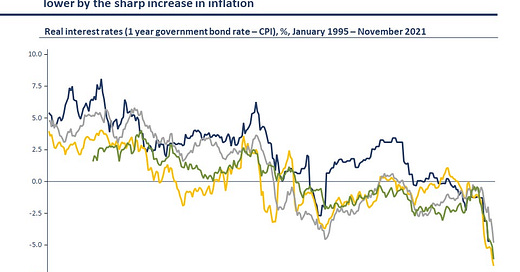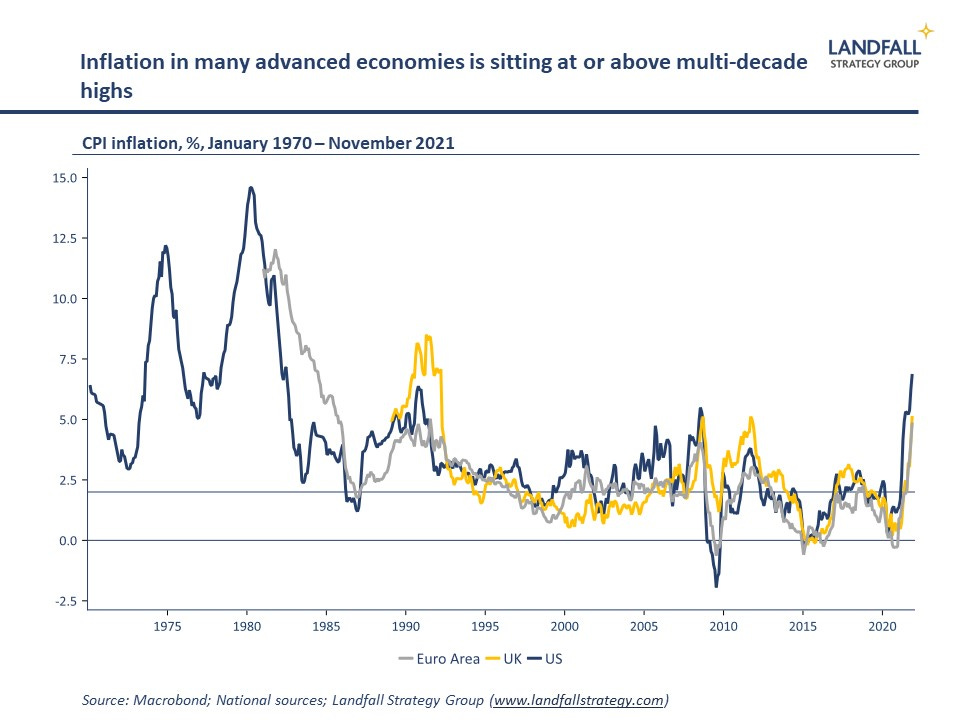Inflation, politics, & the post-Covid economy
High inflation is a deeply political as well as economic process, redistributing income across the economy – from negative real wage growth to more fiscal space
It has been central bank week, with announcements from the Fed, the ECB, the Bank of England, and others (Norway, Switzerland). In response to inflation that has risen sharply to levels not seen for decades, many central banks have begun to tighten monetary policy – or to signal that they will do so.
Uncertainty remains about how persistent these inflationary pressures will be; it is plausible that inflation will moderate markedly through 2022 as frictions and constraints associated with the re-opening of the global economy ease. But central banks are under growing pressure to act.
Inflation is not popular
Indeed, inflation is more than an issue of economic management – it is also deeply political. First, the monetary policy regime is a political choice. Over the past few decades, central banks across advanced economies and beyond were given independent mandates to target price stability. But this political consensus has begun to shift, with central banks being encouraged to weight…




